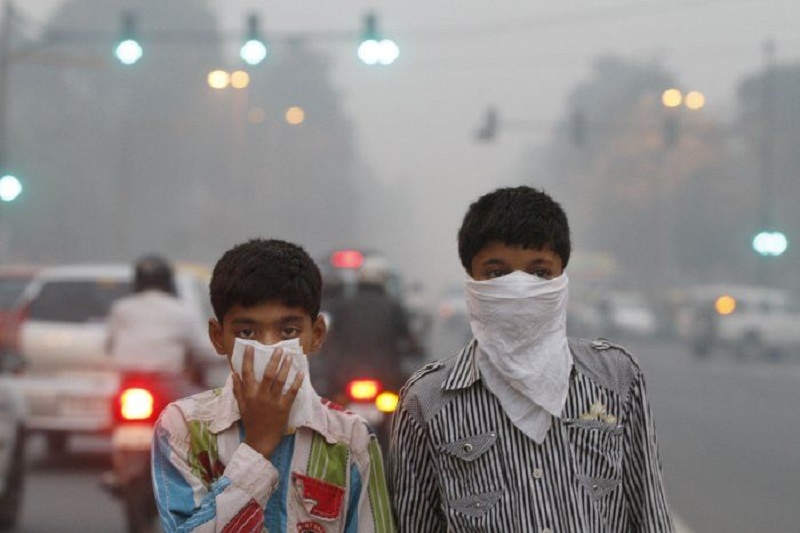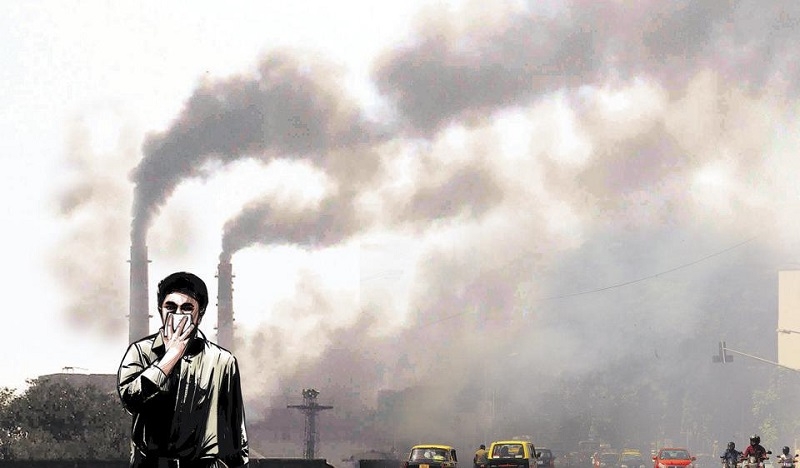Air pollution is cutting lives short by 3.6 years in Madhya Pradesh

Bhopal, Nov 1: A new analysis of the Air Quality Life Index (AQLI), produced by the Energy Policy Institute at the University of Chicago (EPIC), reveals that on an average air pollution cuts life expectancy of citizens in Madhya Pradesh short by nearly 3.6 years relative to what they would be if particulate concentrations everywhere were at the level of 10 µg/m3 which is deemed safe by the WHO.
AQLI reveals that the residents of Bhopal could live about 3 years longer if WHO guidelines were met, a press release issued by AQLI said.
Way back in 1998, the gain in life expectancy by meeting the same air quality standards was 1.5 years. There are also other districts in Madhya Pradesh where people might be living shorter and sicker livers.
For example, in Bhind, citizens could gain 7.6 years if the air quality matched WHO standards. Also Morena, Sheopur, Satna, Shivpuri, Tikamgarh and Singrauli are not far behind where gain in life expectancy could be 6.7 yrs, 4.4 yrs, 4.2 yrs, 4.2 yrs, 4.2 yrs and 3.9 yrs respectively, if people breathe in clean air.
While air pollution is a challenge across India, high levels of particulate pollution in the IGP region of North India, including Bihar, Chandigarh, Delhi, Haryana, Punjab, Uttar Pradesh and West Bengal, would have seen their citizens cut their lives 7 years because air quality fails to meet World Health Organization (WHO) guidelines for fine particulate pollution.
This is due to a 72 percent increase in pollution from 1998 to 2016 in the region that is home to about 40 percent of India’s population. In 1998, the impact on people’s lives would have been half of what it is today, with residents losing 3.7 years of life expectancy.
The findings were announced, as the full platform of the AQLI was made accessible in Hindi, expanding the Index’s ability to inform citizens and policymakers about particulate air pollution—the greatest threat to human health globally.

If India is successful in meeting its goals under the National Clean Air Program (NCAP), and sustaining pollution reductions of about 25 percent, the AQLI shows that such improvements in air quality would extend the life expectancy of the average Indian by 1.3 years. Those in the IGP would gain about 2 years onto their lives.
Speaking at the Hindi AQLI launch event in New Delhi on 31st October, Gaurav Gogoi, Member of Parliament and World Economic Forum, Young Global Leader said, “Top research suggests a clear link of life gains with reduction in air pollution. Citizen’s awareness is the key to demand cleaner air and AQLI is a step in the right direction. I am proposing a private member's bill to amend the 1981 Air Act, highlighting health impacts due to rising air pollution”.
The AQLI is rooted in a pair of peer-reviewed studies in which Greenstone and his co-authors exploited a unique natural experiment in China based on China’s Huai River Winter Heating policy. The natural experiment allowed them to isolate the effect of air pollution from other factors that affect health, and to do so at the very high concentrations that prevail in India and other countries today. They then combined the results from these studies with hyper-localized, global particulate matter measurements, allowing users to zoom in on any district in the world and understand the impacts of that district’s local air pollution on life expectancy.